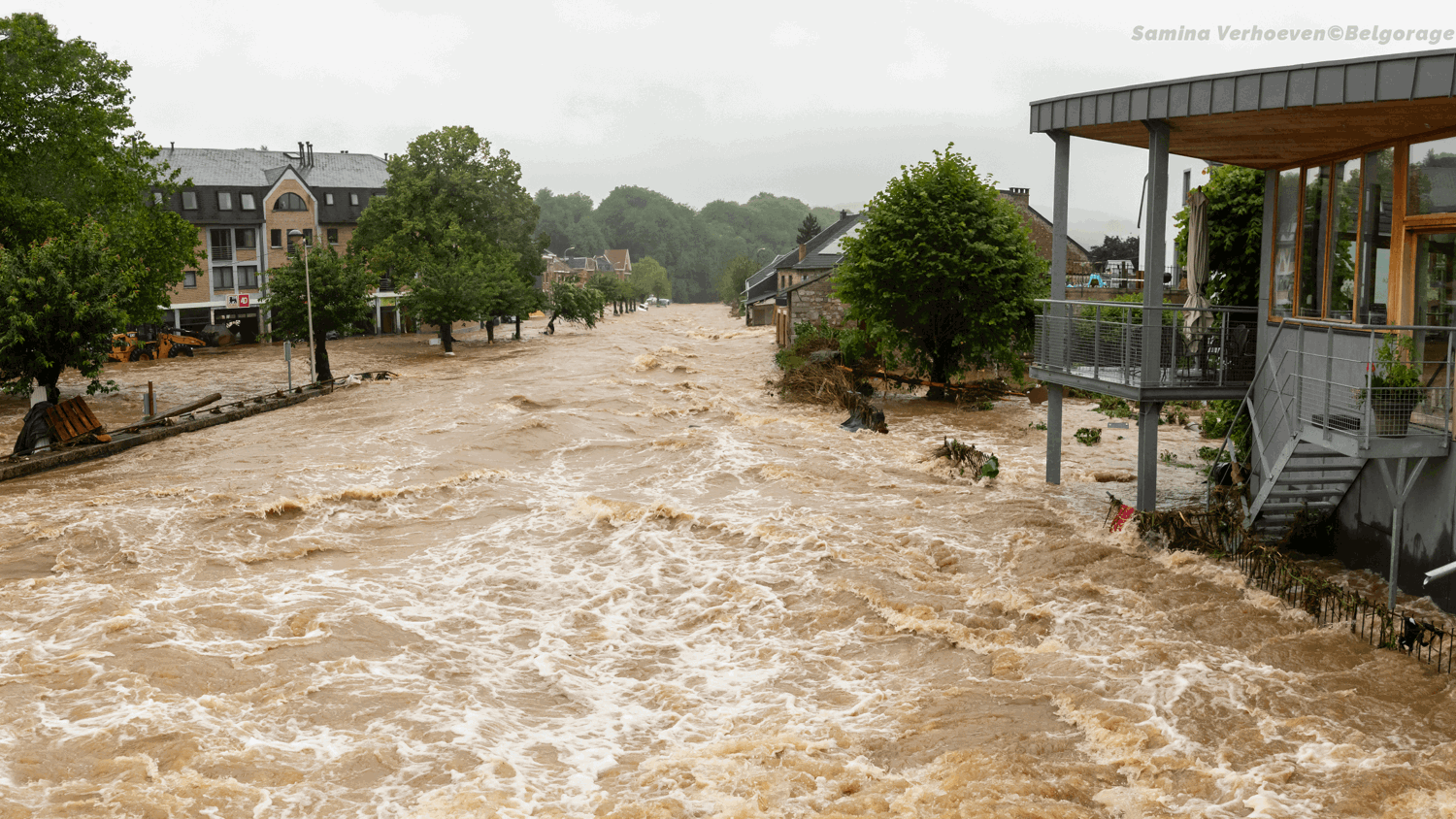
Facing the storms together: Building resilience against weather extremes in Germany
This scene happened on Wednesday, 14 July 2021, in the Ahr Valley, Rhineland-Palatinate, Germany. The disaster was not just a result of extreme weather but also a tragic combination of miscalculations, delayed actions, and overlooked warnings.
How can we better anticipate and mitigate extreme weather events? This question lies at the core of transnational Interreg projects such as FlashFloodBreaker and X-RISK-CC. These initiatives bring together governments, businesses, researchers, and communities across borders to strengthen climate resilience.
The challenge: Flash floods and cascading risks
Flash floods develop rapidly, often within just three to six hours of heavy rainfall. They leave little time to respond and often trigger cascading effects, worsening the damage. For example, heavy rains can lead to flash floods, which in turn can cause landslides, debris flows, and consequent infrastructure failures, further endangering communities and complicating response efforts. As climate change fuels and intensifies these events in Germany and beyond, the FlashFloodBreaker project responds to the need for seamless coordination among forecasters, crisis managers, and emergency responders in the face of disaster. Also, public awareness and preparedness are strengthened to help civilians recognise and respond adequately to potential threats.
At the same time, X-RISK-CC aims to deepen scientific understanding of complex, cascading risks and integrate this knowledge into all phases of risk management practices and in spatial planning. In Alpine regions, where extreme weather can trigger a variety of natural hazards, these extreme events, in turn, can change the preconditions for future hazards to occur. The project investigates how interconnected hazards amplify disaster impacts. The German pilot study in Garmisch-Partenkirchen specifically focuses on hazards caused by precipitation and strategies to mitigate cascading effects. Across five pilot areas in Slovenia, Italy, France, Austria, and Germany, the project studies how heavy rainfall, droughts, temperature changes, and strong winds impact ecological and socioeconomic systems thereby changing the preconditions for future hazards to occur. By identifying future risk drivers in advance, X-RISK-CC enhances preparedness, for example through early warning systems, and mitigation strategies.
Stories from the field
In Garmisch-Partenkirchen (Bavaria), researchers from the X-RISK-CC project have concentrated on precipitation-driven hazards. Prolonged rainfall can lead to large-scale floods. However, even short, intense rain events pose threats, particularly in Alpine touristic areas. The 2018 Partnachklamm flood caused a flash flood after the breaking of a logjam. The 2020 Höllentalklamm flood unleashed 60 000 cubic meters of debris-laden water exceeding a 100-year flood threshold. These events highlight the need for continuous monitoring and risk assessment. Moreover, they reinforce the need for better early warning systems, guidance and tools for risk managers and response organisation to anticipate and plan for these types of events.
Similarly, Daniela Falter from the FlashFloodBreaker project works on improving early warning systems for flash floods at the Emscher-Lippe Waterboard in North-Rhine Westphalia. What happened in July 2021 in neighbouring Rhineland-Palatinate deeply motivates Daniela’s daily work: ’So far, our region has not experienced an extreme flood event. However, the situation in 2021 showed us just at our catchment borders what could have happened. It does make you wonder how well we would have been prepared.’ Her colleague, Telka Schneider, focuses on training crisis managers and first responders: ’In crisis times it is crucial to be familiar with working procedures and communication channels. People working in crisis management are not confronted with these tasks daily, but when an extreme weather event unfolds, every decision and communication must be timely, targeted and precise.’
Early benefits of cooperation
In Germany, the FlashFloodBreaker project is actively engaging municipalities in the Emscher-Lippe region to enhance local preparedness. Municipal interest in improving resilience to extreme weather is growing, yet many crisis units lack the training and resources required for effective disaster management. The FlashFloodBreaker partnership has responded to this need, by bringing together German, Dutch and French first responder and rescue organisations and municipal and regional representatives in Duisburg for an intensive flood management training.
Equally, the X-RISK-CC project has facilitated the exchange of best practices with other Alpine regions, allowing stakeholders in Germany to expand their knowledge and improve disaster preparedness.
Why transnational cooperation matters
The 2021 floods in France, Belgium, and the Netherlands highlighted the urgent need for cross-sector collaboration. Daniela and Telka have observed firsthand how gaps between public institutions and private companies can slow crisis response. However, effective flood management requires a joint effort. In response, the Emscher-Lippe Waterboard has increased engagement with private-sector stakeholders, conducting training sessions with companies responsible for critical infrastructure. The X-RISK-CC project also underscores the importance of transnational cooperation: a major challenge in Germany is the absence of a centralised event register for tracking extreme weather events, both major and minor. In contrast, several partner countries maintain comprehensive datasets, which facilitate more accurate trend analysis and forecasting. X-RISK-CC advocates for improved data-sharing mechanisms and a more coordinated approach to climate adaptation across borders.
Facing the storms together with hope and a vision
Daniela and Telka emphasize that climate change is already having visible and painful effects in Germany. They hope that strengthening resilience to flash floods and extreme weather will become a greater priority for politicians, entrepreneurs, policymakers, funders, and other key decision-makers.
The FlashFloodBreaker and X-RISK-CC projects showcase how transnational collaboration is essential to enhance climate resilience in Germany. By learning from past disasters, we can build a future where no one is forced to retreat on their rooftop in the face of a flash flood again.




